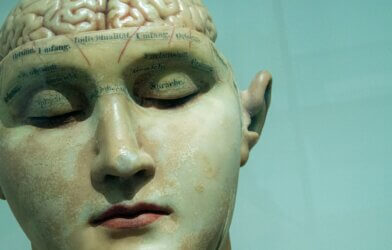Eureka! How Babies Unravel the Mystery of Conscious Awareness
Have you ever wondered how humans develop a sense of purpose and the ability to make things happen? A groundbreaking study conducted at Florida Atlantic University (FAU) has uncovered some of the secrets behind this mystery, and the answers might surprise you.
Researchers at FAU used young infants as their subjects to understand how spontaneous movements evolve into purposeful actions. They designed an experiment where an infant’s foot was tethered to a crib-mounted baby mobile. When the infant moved their foot, the mobile would also move. This simple setup allowed scientists to observe a critical moment of realization in infants.
Using advanced motion capture technology, the researchers tracked the movements of both the infants and the mobile in 3D space. They were looking for signs of when babies transition from spontaneous movements to intentional actions, marking the “birth of agency.”
The study, published in the Proceedings of the National Academy of Sciences, revealed that agency, or the ability to act with purpose, emerges from the interaction between the baby and its environment (the mobile). As the baby moves its foot and sees the mobile respond, a positive feedback loop is created. This feedback loop amplifies the cause-and-effect relationship, making the baby realize its power to affect the mobile’s movement.
The moment of realization, often referred to as an “aha!” moment, is characterized by a sudden increase in the infant’s movement rate. To identify this moment, the researchers developed a quantitative “aha!” detector that pinpointed abrupt increases in the infant’s movement rate when they made the connection.
What’s fascinating about this study is that it quantified the emergence of human agency as a “eureka-like” phase transition within a dynamic system involving the baby, its brain, and the environment. In other words, babies experience a profound shift in their understanding of cause and effect.
Traditionally, experiments involving infants and mobiles focused solely on infant activity, treating the infant and the environment as separate entities. However, this FAU study approached agency as an emergent property resulting from the functional coupling of the baby and its environment.
The findings challenge the idea that only active movements matter. The researchers discovered that both action and inaction provide meaningful information to infants as they explore the world and their place in it.
Moreover, the study revealed that infants navigate their connection with the mobile in different ways, suggesting that observable characteristics of agentive discovery exist. This novel approach to studying infant behavior could be valuable for early identification and treatment of infants at risk.
So, the next time you see a baby playing with a mobile, know that they are not just moving their limbs randomly. They are engaging in a profound process of self-discovery, realizing their power to make things happen in the world intentionally. It’s a reminder that even the smallest among us are capable of remarkable insights.













